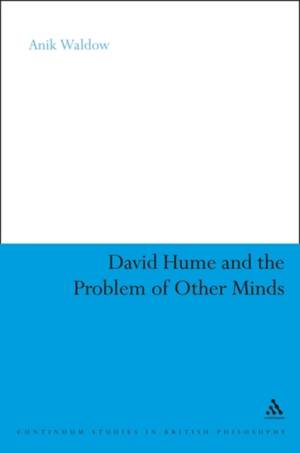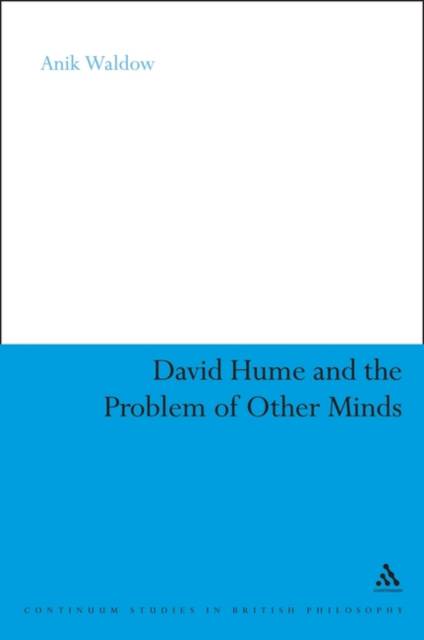
- Afhalen na 1 uur in een winkel met voorraad
- Gratis thuislevering in België vanaf € 30
- Ruim aanbod met 7 miljoen producten
- Afhalen na 1 uur in een winkel met voorraad
- Gratis thuislevering in België vanaf € 30
- Ruim aanbod met 7 miljoen producten
Omschrijving
The problem of other minds has widely been considered as a special problem within the debate about scepticism. If one cannot be sure that there is a world existing independent ly of one's mind, how can we be sure that there are minds - minds which we cannot even experience the way we experience material objects?
This book shows, through a detailed examination of David Hume's A Treatise of Human Nature, that these concerns are unfounded. By focusing on Hume's discussion of sympathy - the ability to connect with the mental contents of other persons - Anik Waldow demonstrates that belief in other minds can be justified by the same means as belief in material objects.
The book thus not only provides the first large-scale treatment of the function of the belief in other minds within the Treatise, thereby adding a new dimension to Hume's realism, but also serves as an invaluable guide to the complexity of the problem of other minds and its various responses in contemporary debate.
Specificaties
Betrokkenen
- Auteur(s):
- Uitgeverij:
Inhoud
- Aantal bladzijden:
- 218
- Taal:
- Engels
- Reeks:
- Reeksnummer:
- nr. 100
Eigenschappen
- Productcode (EAN):
- 9781441123435
- Verschijningsdatum:
- 22/12/2011
- Uitvoering:
- Paperback
- Formaat:
- Trade paperback (VS)
- Afmetingen:
- 156 mm x 234 mm
- Gewicht:
- 312 g

Alleen bij Standaard Boekhandel
Beoordelingen
We publiceren alleen reviews die voldoen aan de voorwaarden voor reviews. Bekijk onze voorwaarden voor reviews.








